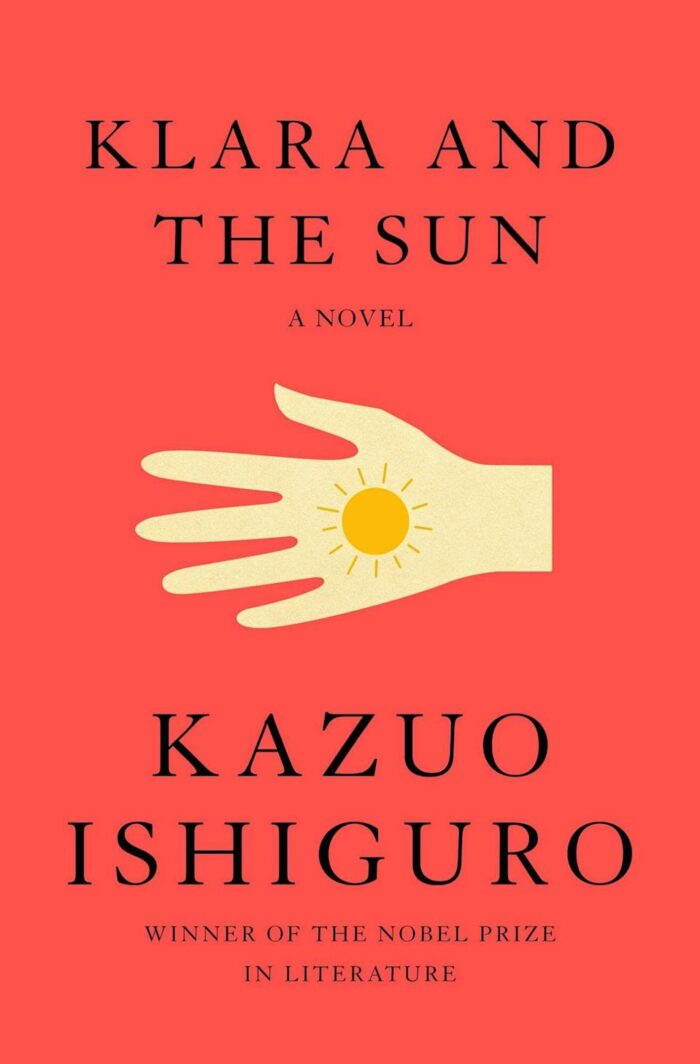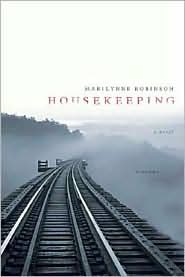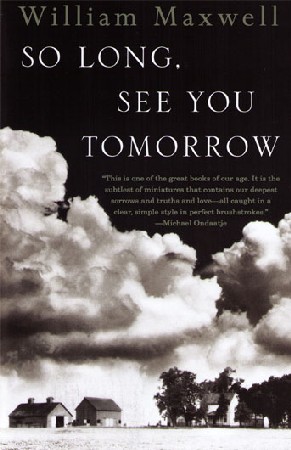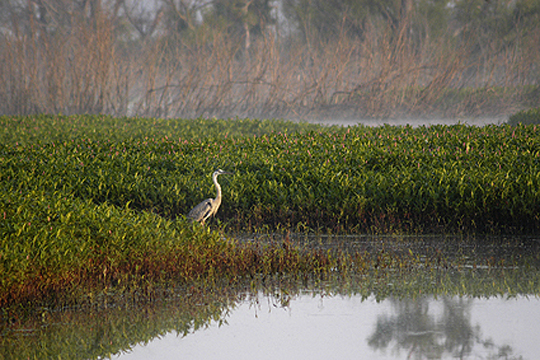Klara and the Sun
Kazuo Ishiguro’s novel probing our ambivalent relationship with artificial intelligence reminded me of something a favorite college professor once said about Emily Dickinson’s poems: she places her subjects under a microscope and examines them. In the same way, Klara and the Sun isn’t a sweeping and passionate story, but a quiet one, developed with great precision. It’s a provocative, at times suspenseful read that left me with a sense of unease.
Klara, the narrator, is an “AF” (Artificial Friend) who begins the story in a store, is purchased by a young girl named Josie with a mysterious illness, and enters into Josie’s family (Josie, her mother, and her housekeeper) for several years as they work through some major decisions about Josie’s future. Other characters who figure into the story are Josie’s father, now separated from her mother and living in a community described as having “fascistic” tendencies; her best friend Rick and his mother, living next door; and an artist creating a portrait of Josie.
It turns out that Josie is “lifted,” a euphemism signifying she has undergone gene editing to improve her chances at success in adult life, and her health problems result from this. She and her mother are part of a group of such tweens who do all their schooling at home on “oblongs” and meet periodically for socializing practice. Rick is not lifted, though he’s a gifted engineer who develops surveillance drones for recreation. Though the story takes place in the future, all of this resonates with aspects of our experience now, from the focus on DNA to heal disease to the isolating effects of the Covid lockdowns to the surveillance industry and its questionable ethics. It’s also hard to miss the questions it raises about the pressure in some families, detailed in books like Where You Go Is Not Who You’ll Be, to blaze the “right” trail to an upper-class future.
Klara is an observant, responsive learner, and over the course of the novel she grows in her ability to think abstractly and to understand human emotion. Her role is ostensibly to be Josie’s friend, but she becomes much more significant as the book comes to a climax. Some reviewers have noted that Klara seems more humane than the humans in the story, and this is partly because she makes a sacrifice to save Josie’s life. Strangely, though she is an advanced technological creation in an advanced technological age, she holds to a primitive belief in the sun as a god; she is, after all, solar-powered. Her plan for saving Josie is presented as a religious act in which she makes an offering and prays to the sun, and she feels certain that he responds.
Klara represents a sharp contrast to Josie’s mother, who never seems able to get past her own feelings and needs. In fairness, though little is explained about the circumstances, we learn that she is still suffering from the loss of Josie’s sister sometime before the story begins, and there are hints that it was somehow related to going through the “lifting” process. The mother seems never to have recovered, and she lives in dread of losing Josie as well. Her resulting actions throughout the story suggest the sometimes incredible hopes people are willing to place in technology. At different times, she looks to Klara to provide for various needs in the family. Though we are not quite so far along the technopolistic continuum as to have AFs in most households, it’s sobering to consider how many functions, some of them relational, are commonly relegated to technology: smart home devices, smart cars, social media, text and email rather than live conversation.
The characters in the story display a range of orientations toward Klara. Josie’s father is a skeptic about the relational possibilities of AFs, though as he comes to know Klara better he expresses some doubt about his feeling that there is a core being in a real human that can never be replicated. At the far end of the continuum is the artist charged with creating Josie’s portrait, who reveres the possibilities of Klara and AI in general. We get to know Klara from the inside, as she is our window into the story, and while she is an unfailingly rational voice, it’s clear that she develops deep insight into how human emotions and relationships work. Though it can be hard to distinguish her programmed adherence to “doing her duty” as an AF from genuine caring, her willingness to help Josie regardless of the cost to herself certainly looks like what we would call love — even heroism.
The ending is unsatisfying. All in all I found this to be a very good read, but one that failed to provide enough information for us to enter in as fully as I’d like. Perhaps the idea is to put us in Klara’s shoes, where we must figure out the present situation without ever learning all the history. In the end it felt unfinished.




